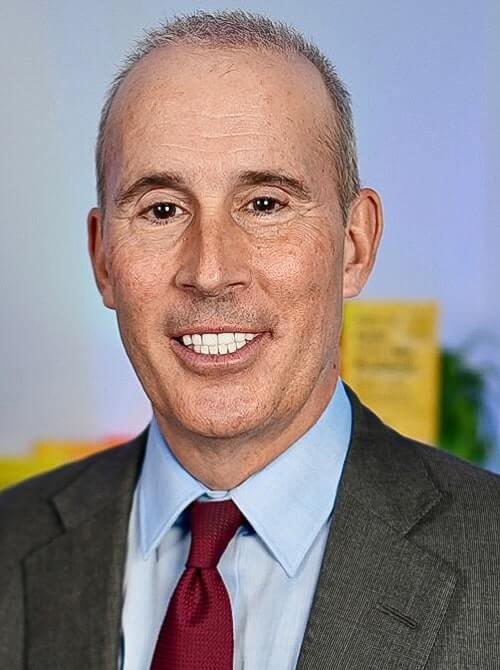Personal and Professional Goal Setting | Online Course
Goal Setting for Personal and Professional Success
Skills you’ll gain
Making tangible progress on ambitious goals can sometimes feel impossible. Whether you want to improve your health, grow your wealth, or get a promotion at work, success is within your reach – but it takes focus, discipline, and the right set of tools. In this course, acclaimed speaker TJ Walker provides powerful strategies so you can know how to set goals and achieve them no matter where you’re starting from. This course covers:
- Mistakes we make when setting goals.
- How to eliminate distractions.
- The seven spheres of our lives.
- How to categorize goals accurately.
- Habits that move us closer to success.
- How to tackle goals effectively.
By the end of this course, you'll know how to cultivate habits to improve relationships, health, wealth, and more. Achieve your greatest ambitions, and get the tools and strategies to grow in all aspects of life.
Syllabus
Download syllabus-
1
Introduction to the Seven Spheres, Self-Control, and Health Goals To truly be successful, we should not focus on one goal and completely ignore the other aspects of our lives. For example, making lots of money at the expense of your health is a bad idea. True success in life will require a balanced approach. 4m
-
2
Relationships, Lifelong Learning, and Creativity Goals Forming and maintaining relationships is essential for personal growth, as are lifelong learning and the ability to express yourself using your creativity. 4m
-
3
Leisure and Wealth Goals Everyone should be able to enjoy their free time in any way they want, but when it comes to personal wealth, it’s important to know how much is enough. 6m
-
1
Seven Levels of Goals for Each Sphere Within each of the seven spheres of life, you should identify these seven aspects and plan how you will go about achieving your goals on a daily basis. 5m
-
2
Self-Control What is your vision for how you see yourself, and the amount of influence you have on your own life? 6m
-
3
Health What goals do you have for your personal health, and how do you want to accomplish them through daily habits and long- and short-term goals? 4m
-
4
Relationships What are your views on relationships, especially as it pertains to yourself and your personal happiness? How can you support your goals for relationships on a daily basis? 5m
-
5
Lifelong Learning Do you believe you are limited by your IQ or your age? Do you still have the desire to learn? The goals you set for yourself in terms of lifelong learning can impact your personal happiness and professional success well into the future. 5m
-
6
Creativity Creating something to share with the world can be a satisfying experience, but what might you create? Setting goals related to personal creativity can impact your personal and professional happiness. 6m
-
7
Leisure What do you do every day to have some fun outside of work? It’s okay to set goals for yourself that focus on leisure because they help you find a balance within your life. 5m
-
8
Wealth How much wealth will it take for you to be happy? Setting goals you can work on every day to support short- and long-term goals can lead to financial success in the long run. 6m
-
1
The Most Powerful Form of Influence Advertising is so effective at influencing people because of repetition. By inundating an audience with their own goals, corporations can impact the choices people make. 7m
-
2
How the Selfie Speak Program Works Give yourself daily guidance with a Selfie Speak program, written and created by you! 7m
-
3
Revise Your Selfie Speak Anytime to Reflect New Goals Priorities change over time, and so should your daily, short-term, and long-term goals and habits. Keep your Selfie Speak program current and make adjustments any time. 3m
Certificate
Certificate of Completion
Awarded upon successful completion of the course.

Instructor
TJ Walker
TJ Walker has been conducting media training workshops and seminars since 1984. Walker has trained Presidents of countries, Prime Ministers, Nobel Peace Prize winners, Super Bowl winners, U.S. Senators, Miss Universes and Members of Parliament.
His book, "Secret to Foolproof Presentations" was a USA Today #1 Bestseller, as well as a Wall Street Journal and Business Week Bestseller. Walker is a also a regular contributor to Forbes and the Reuters Insider Network and has written for the Huffington Post.

TJ Walker
Public Speaking Trainer and Author
Accreditations
Link to awardsHow GoSkills helped Chris
I got the promotion largely because of the skills I could develop, thanks to the GoSkills courses I took. I set aside at least 30 minutes daily to invest in myself and my professional growth. Seeing how much this has helped me become a more efficient employee is a big motivation.


